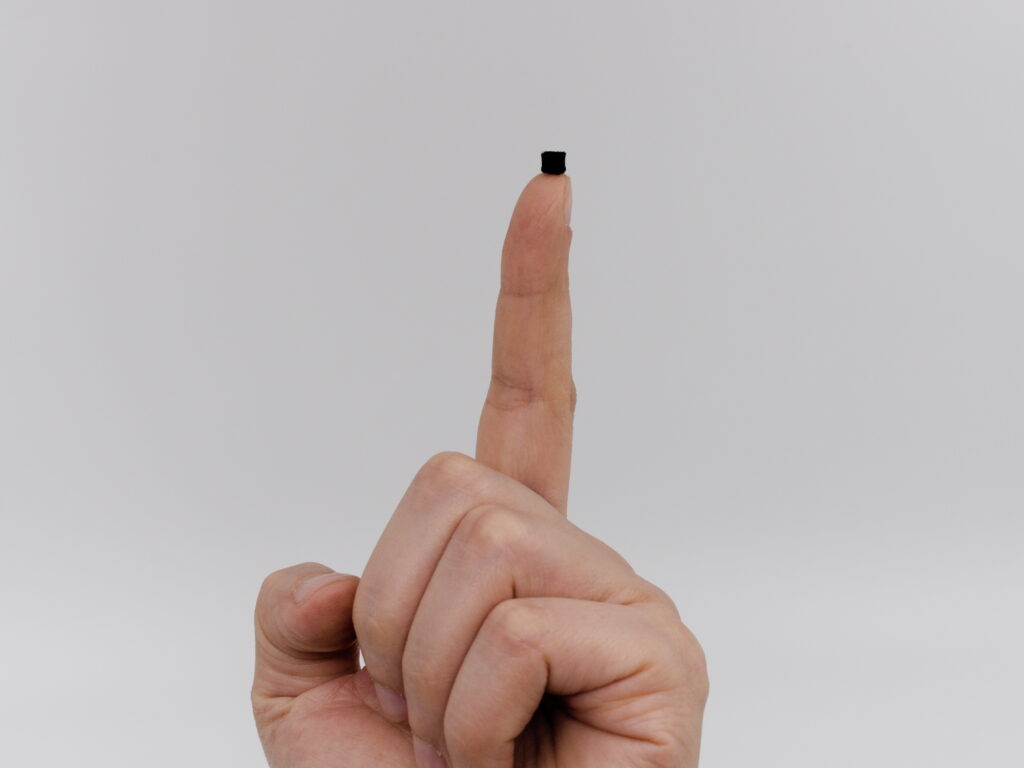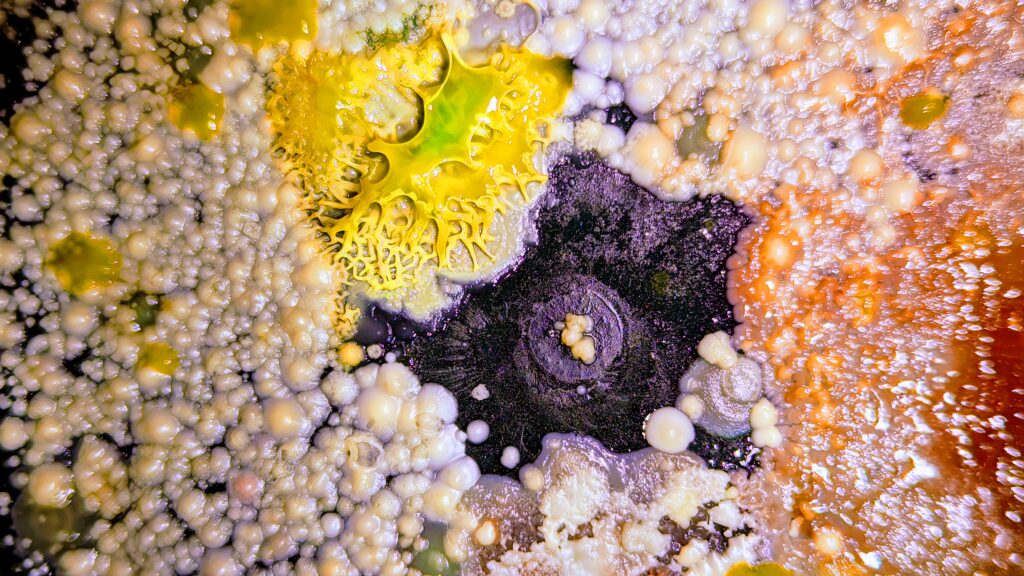
Dear friends of the Jewellery- Linking Bodies department,
After a short break and a wonderful symposium, we held in February, we are back with our ongoing lecture series.
What was the Monday evening lectures with invited guests will now take place on Tuesday afternoon. This series will bring together an alumnus of the department in a conversation with invited artist. Our new series of talks will start next week, with Virág Szalas-Motesiczky (2021 Jewellery- Linking Bodies alumni) in conversation with Agnieszka Anna Wołodźko.
When: Tuesday 26th of March- 14:30-17:00
Where: Gerrit Rietveld Academie, FedLev Auditorium Fred. Roeskestraat 96, 1076 ED Amsterdam
We look forward to seeing you again!
Program:
Collective Bodies and Observation Machines through Speculative Spaces by Virág Szalas-Motesiczky
Collective bodies challenge the phenomena of the “never-existing individual” or, from another perspective, the concept of “impurity”; through taxonomic classification and contamination practices. These theories could encourage us to think critically about certain power dynamics and (bio)political spaces where the social and the “anonymous material” have always been interconnected.
How might hypothetical methodologies support artistic research while engaging with scientific or non-fictional spaces by dissecting problematic contexts with speculative tools and imaginary scenarios?
How can jewellery be approached as a scaling machine and seen as a compressed environment in which historical and political records can be analyzed through tactile qualities?
Bio
Virág Szálas-Motesiczky (1990) was born in the former Czechoslovakia during the period of the transfer of power. This significant historical event, and its remains left behind, plays a major role within her artistic research practice. “How social constructions are built through decision-making processes, what kind of traditions are present and reinterpreted through generations, or (why) do we consider the inherited past as an exact definition of our present while speculating towards the ideal future(s)?” Her practice operates with collective thinking through group dynamics and individual praxis. She studied at the Design Academy Eindhoven and graduated from the Gerrit Rietveld Academie; she co-founded a speculative artistic research studio and is currently pursuing a master’s degree in an experimental program on critical ecology and post -anthropocentrism.
https://motesiczky.com/
Practicing contamination: on working in demonic grounds by Agnieszka Anna Wołodźko

In this presentation, Agnieszka will talk about her research on the notion of contamination that conditions living bodies. Contamination as such is viewed as an ontological way of being, having epistemological consequences on how to practice living bodies. Trained within philosophy, she will share how she found herself working in what she describes as demonic, because ever changing and unfamiliar spaces of the Art Academy, building biolab space and artistic research program devoted to working with living bodies. By mapping urgencies, problems, intimacies and failures, she will discuss how to work with precariousness: with that what escapes capture. The presentation will thus derive from her philosophical and pedagogical practice but also disciplinary and existential struggles of experimentation that betrays masters – on how to practice contamination.
Bio
Agnieszka Anna Wołodźko, PhD, is a lecturer and researcher teaching contemporary philosophy and art-science at AKI Academy of Art and Design ArtEZ since 2017. At AKI she has founded a biolab space where she runs a BIOMATTERs, an artistic research programme that explores how to work with living matters. Her research focuses on post-humanism, ecocriticism, affect theory and new materialism at the intersection of art, ethics and biotechnology. Selected recent publications include: Affect as Contamination. Embodiment in Bioart and Biotechnology, Bloomsbury, 2023; “Ars Demones*2022*Manifesto,” in Footprint. Delft Architecture Theory Journal; “Demonological re-enchantments – or how to contaminate through intimate stories of commons without consensus,” in Technoetic Arts: A Journal of Speculative Research; ‘Living Within Affect As Contamination: Breathing In Between Numbers’ in Capacious: Journal for Emerging Affect Inquiry.